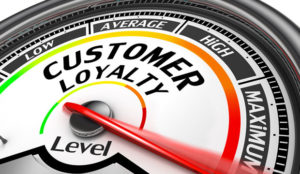The magnitude to which retail stores recover when consumers fully adjust to post-pandemic routines may well hinge on the shopping experiences they offer, whether online or in-person.
Despite U.S. storefronts reopening, e-commerce is still seeing a surge in sales. To maintain retail success in 2021, retailers will need to continue optimizing their digital experience.
A new study of consumers in the U.S. and UK from customer experience management company Sitel Group shows that the majority of shoppers today view customer experience as one of the most important factors when making purchasing decisions.
Findings show that to survive in a post-Covid world, retailers will need to make new investments in CX tools that provide instant customer engagement in order to maintain high sales in 2021.
Sitel Group in May announced that most brands recognize the benefits of building customer loyalty. But recognizing and acting on the fundamental drivers of customer loyalty can be a complex task. If not done correctly, it can lead to damaged reputations and negative perceptions among consumers.
The report found that one-third of consumers considered breaking up with a brand, while another 65 percent severed ties with sellers as a result of a poor customer experience. The Sitel Group white paper, “Driving Customer Loyalty: Perception, Effort and Action,” analyzed how product and service providers create loyalty and the key considerations for what consumers value.
Understanding what consumers value may be even more complex in a post-Covid economy as they have been forced to adapt how they interact with brands due to the pandemic.
How To Encourage Customer Loyalty
Despite changes in communication, nearly all respondents (97 percent) believe retailers are working to deliver a positive customer experience. But, only 43 percent of all respondents agree this effort is making a tangible difference, meaning that 57 percent of customers believe brands still need to do more to align with their expectations.
“As we move into a post-pandemic environment, heightened competition for customer loyalty will create a greater emphasis on CX,” said Martin Wilkinson-Brown, CMO, of Sitel Group.
“The 2021 Driving Customer Loyalty white paper confirms the importance of positive customer experiences and the correlation to customer retention. Although our research found that customers trust that brands are working to deliver positive experiences unless consumers see this translated into action, the effort to improve CX will fall flat,” he explained.
For those curious about how to encourage customer loyalty, the report found that 42 percent of consumers said the perception that the brand offers good value for money is a top driver. This sentiment holds true across all age groups and demographics in the U.S. and UK.
Furthermore, the attributes customers most closely associated with a brand’s commitment to the delivery of a positive customer experience are:
- Helpful and friendly staff (69 percent)
- Fast response to questions (53 percent)
- An easy-to-use website (51 percent)
Across industries, geographies, and genders, the goals must ensure they commit to a best-in-class CX geared toward driving customer loyalty.
Staunch Consumer Reaction
One of the most surprising takeaways from the Sitel Group’s latest report is the voracity of consumer breakups with their former beloved brands. At the very start of this year, over one-third of consumers admitted they considered breaking up with a brand due to poor CX, according to Wilkinson-Brown.
“The majority of this group took action to sever ties with a brand, and many even posted a negative review to deter future customers from doing business with them. These are scary stats for retailers looking to recover in the highly competitive post-Covid-19 market,” he told the CRM Buyer.
Interestingly, unfriendly staff (25 percent) and slow service (21 percent) were the top reasons consumers considered breaking up with a brand. Conversely, helpful staff is overwhelmingly the top attribute that consumers feel demonstrates a brand’s commitment to a positive CX (69 percent).
“Brand loyalty depends on having knowledgeable and friendly workers — whether in-store or through various customer support channels — ready to help shoppers,” he offered.
One of the most prevalent demands from consumers is more access to chat features. But e-tailers are often slow to respond or ignore that service completely.
Self-service technologies such as chatbots, messaging, and live chat are not necessarily new concepts for retailers, noted Wilkinson-Brown. Sitel’s survey found that these tools are a key component of CX, with two in five respondents — along with nearly half of millennials — agreeing.
“These tools provide the ability to quickly and effectively resolve issues without needing to move to another channel. Retailers must improve their websites or apps to become a portal to find necessary information and answers, and chat options are now a critical component of doing this effectively,” Wilkinson-Brown said.
CX Determines Staying Power
Brands need to consider one of the biggest trends among consumer reactions, suggested Shelly Socol, co-founder and CEO of One Rockwell. That is expanding their overall customer experience when it comes to operations and customer service.
“Users are now expecting live chat on all sites and free shipping / free returns on all purchases. They want their experience to be streamlined and as easy as possible. That’s not to say they absolutely will not make a purchase without it, but if consumers are now expecting it, you do not want your lack of offering it to result in lost revenue,” she told the CRM Buyer.
Another part of consumer staying power is “brand purpose.” Brands need to stand for something in an honest and transparent way, whether that is donating proceeds to charities or changing their operations to be more sustainable.
“Consumers want to be a part of something ‘good’ — and if they can feel they are when they are purchasing online, they are more likely to click that Buy Now button,” Socol added.
Adding Perspective
Consumers are no longer doing business with brands solely because they enjoy their products or services, according to Sitel’s Wilkinson-Brown.
“Today’s shoppers are more intentional and demand customer experience improvements in return for their business and, in the long-term, their loyalty. To maintain success, retailers must invest in building strong customer relationships, and this starts with creating top-notch shopper experiences,” he told the CRM Buyer.
A clear majority of respondents (90 percent) said they will pay more for an identical product if it comes with a better customer experience. So it is clear that consumers are putting their money where their mouths are. They expect brands to do the same, he added.
In addition to the traditional cravings for friendly staff and simple websites, it is interesting to see some new CX facets bubble up in importance for consumers, he noted. For instance, consumers demand that brands commit to social causes.
More than one in four (27 percent) consumers say they are more likely to purchase from companies that are supporting causes that matter to them, and it is evident that corporate social responsibility efforts will continue to play a big role in consumers’ purchasing and brand loyalty decisions, said Wilkinson-Brown.
“Striving for stellar CX should be a no-brainer for merchants in the post-Covid competitive retail space. So why are so many customers giving failing grades to their CX experiences?” he interjected.
What Consumers Want
Based on the survey, customers want brands to hire and train helpful workers, ensure quick responses to customer service questions, and offer an easy-to-navigate website. These must-have attributes lay the foundation for a stellar CX that drives long-term loyalty, he responded.
“However, there are also more technical features that are rising up to the top of CX must-have lists, especially for younger generations of shoppers. From live chat support (40 percent) to technology investments (29 percent) and even strong social media presence (22 percent), shoppers are starting to expect retailers to adopt new tools and take a digital-first approach to CX,” advised Wilkinson-Brown.
In a nutshell, customers believe brands still need to do more to align with their expectations. Poor CX is hurting customer loyalty. A significant 65 percent have already severed ties after a bad experience.
Today’s consumers want the best value for their money, with 42 percent citing this as the top driver for brand loyalty.
“The pandemic also proved to the retail market that the future of shopping is not just about e-commerce alone. It is about a merging of digital and in-store experiences, as shoppers crave the simple and safe aspects of e-commerce with the instant gratification of brick-and-mortar shops,” noted Wilkinson-Brown.
Closing Thoughts
The pandemic forced retailers to innovate at an unprecedented pace, and 2021 promises another year of transition and change. Companies that rise to the challenge and institute organization-wide changes will gain the agility and intelligence to help their brands outlast the uncertainties of the moment, observed Durk Stelter, chief revenue officer of Linc.
“By combining the power of AI with human insights, retailers can guide customers through increasing complexity, fostering strong customer relationships, and winning lasting loyalty while providing a best-in-class customer experience,” he told the CRM Buyer.
The overall volume of online customer service interactions has jumped significantly. It is likely to stabilize at higher levels than in the pre-pandemic era, Stelter predicted.



























































